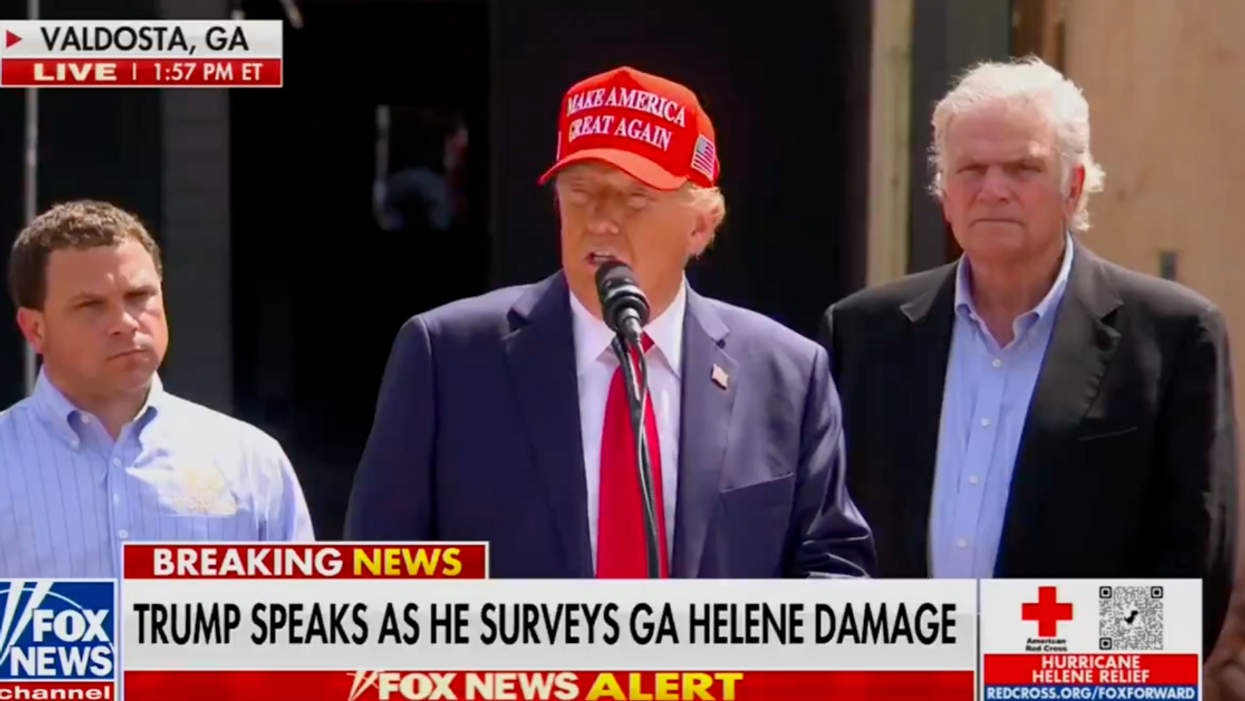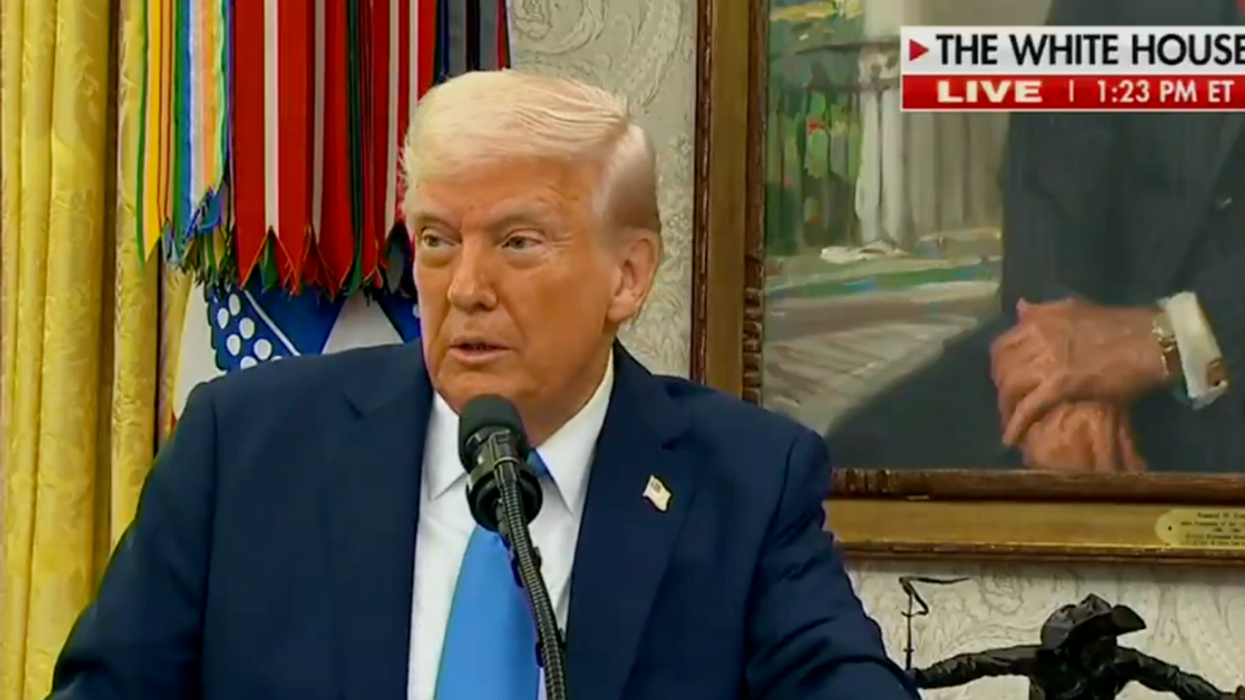Former President Donald Trump was swiftly fact-checked after he claimed that "nobody" could have predicted Hurricane Helene, particularly because it's "so late in the season for hurricanes"—when it's actually not.
Hurricane Helene struck Florida on Thursday, then barreled through large sections of the southern and eastern U.S., resulting in at least 116 deaths and widespread destruction of homes and property.
In Georgia, where Trump made the patently false claim, high winds toppled trees, causing significant flooding, and leaving over half a million people without power. Crews in Georgia are working around the clock to clear debris and restore power, with emergency management teams deployed in 32 counties across the state.
He said:
“The devastation wrought by this storm is incredible. It’s so extensive, nobody thought this would be happening, especially now it’s so late in the season for the hurricanes.”
"Homes, highways, hospitals, and cars have been plunged underwater. Entire neighborhoods have been turned into lakes. Nobody's seen anything like it."
You can hear his remarks in the video below.
Trump couldn't be more wrong.
His claims are easily refuted by data from the National Weather Service—an agency he and his supporters are interestingly aiming to dismantle according to the initiatives outlined in Project 2025.
Each year, on average, 12 tropical storms form over the Atlantic Ocean, Caribbean Sea, or Gulf of Mexico, with six of them intensifying into hurricanes during the hurricane season, which lasts from June 1 to November 30.
In the Central Pacific Ocean, three tropical storms form or move into the region on average, two of which develop into hurricanes. Guam, the Northern Marianas, and Micronesia face typhoons year-round, with the main season running from July to November and peaking from mid-August to mid-September.
Typically, over a two-year period, the U.S. coastline is hit by three hurricanes on average, with one classified as a major hurricane (winds of 111 mph or higher).
Additionally, climate change is exacerbating hurricane impacts in the United States by making storms more intense and slower-moving.
While scientists are still uncertain whether the total number of hurricanes will change, they are confident that the intensity and severity of these storms will continue to rise. As a result, hurricanes are becoming increasingly costly, both in terms of physical damage and loss of life.
So it's actually not too late to be in hurricane season—and many were quick to point this out.
It should go without saying that Trump doesn't understand hurricanes at all.
In 2019, Axiosreported that Trump asked why the United States could not just drop a nuclear bomb into the eye of a hurricane to stop it from making landfall.
Trump's question–which he vehemently denied ever asking–prompted a response from the National Oceanic and Atmospheric Administration (NOAA), which noted that detonating a nuclear weapon "might not even alter the storm" and the "radioactive fallout would fairly quickly move with the tradewinds to affect land areas."








 AMC
AMC







